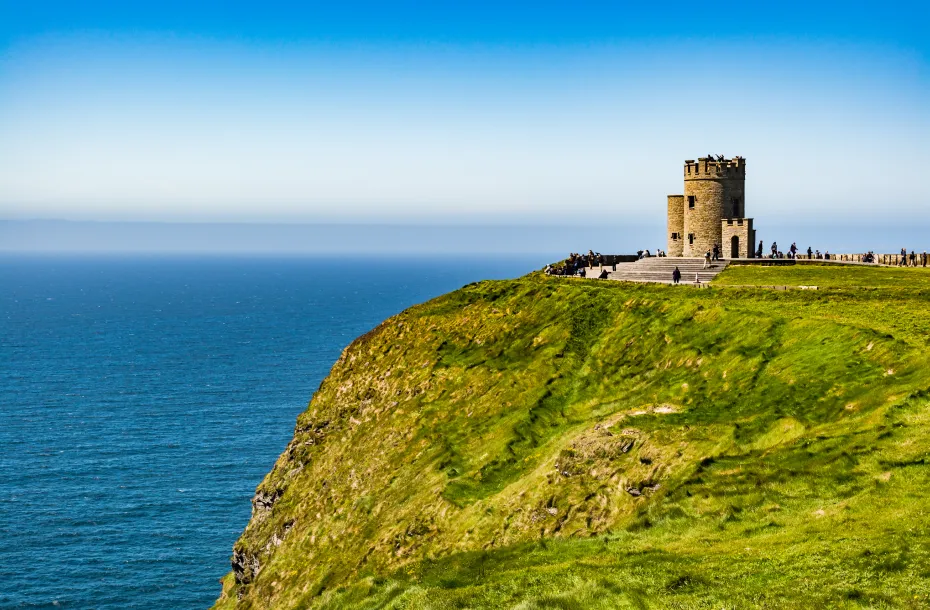Ireland, often referred to as the Emerald Isle, is known for its lush green landscapes, historic sites and warm hospitality. For travelers looking to explore this captivating destination, taking a ferry to Ireland is an ideal option. It provides flexibility, comfort, and a scenic journey that flying often lacks. This guide covers everything you need to know about ferry connections, transportation options in Ireland, top attractions and travel tips to ensure a memorable trip.
Ireland has a magnetic charm that draws visitors from around the world. Whether you're seeking natural beauty, cultural experiences, or vibrant city life, Ireland has it all. Here's why you should visit:
- Stunning scenery: From the Cliffs of Moher to the Ring of Kerry, Ireland’s landscapes are breathtaking
- Rich history: Explore ancient castles, Stone Age monuments, and medieval cities
- Welcoming people: Known for their friendliness, the Irish make every visitor feel at home
- Unique culture: Enjoy traditional Irish music, festivals and world-famous pubs
Major ferry routes
Taking a ferry to Ireland offers a convenient and enjoyable way to travel. Several routes connect Ireland to neighboring countries such as UK and France:
UK to Ireland
Operated by: Stena Line
Duration: Around 3 hours
Operated by: Stena Lne
Duration: 4 hours
Operated by: Stena Line
Duration: Around 2 hours
France to Ireland
- Cherbourg to Dublin/Rosslare
Leading ferry operators provide reliable service with comfortable onboard amenities:
- Irish Ferries: Fast and frequent crossings
- Stena Line: Known for excellent facilities and family-friendly travel
- Brittany Ferries: Offers crossings from France
Benefits of taking a ferry to Ireland
- Bring your vehicle: Perfect for road trips and touring Ireland’s scenic countryside
- Relaxing journey: Spacious lounges, onboard dining and panoramic views
- Eco-friendly travel: Lower carbon footprint compared to air travel
Transportation options in Ireland
Once you arrive in Ireland, getting around is easy thanks to a well-connected transport network. Ireland offers efficient train and bus services:
- Trains: Operated by Iarnród Éireann, trains connect major cities like Dublin, Cork and Galway
- Buses: Long-distance options include Bus Éireann and private operators
- Car rentals: For maximum flexibility, renting a car is a great choice
- Cycling: Ireland is bike-friendly with scenic trails and quiet country roads. Rent a bike to enjoy the stunning countryside at your pace
Top attractions in Ireland
Dublin
Ireland’s capital is a hub of culture and history. Highlights include Trinity College’s Book of Kells, the Guinness Storehouse, and vibrant Temple Bar.
Galway
Known for its artistic vibe and lively music scene, Galway is also a gateway to the Aran Islands and Connemara National Park.
Cliffs of Moher
One of Ireland's most iconic natural attractions, the Cliffs of Moher offer dramatic views of the Atlantic Ocean.
Ring of Kerry
This scenic drive is a must-see, featuring rugged coastlines, charming villages, and panoramic vistas.
Giant’s Causeway
Located in Northern Ireland, this UNESCO World Heritage site is famous for its unique basalt columns.
Activities to enjoy in Ireland
- Visit castles like Bunratty Castle or Kilkenny Castle
- Explore prehistoric sites such as Newgrange
- Hike in Killarney National Park
- Enjoy water sports along the Wild Atlantic Way
- Sample Irish stew or seafood chowder in cozy pubs
- Try locally crafted drinks like whiskey and Guinness
FAQs about ferry travel to Ireland
What is the fastest ferry route to Ireland?
The Holyhead to Dublin route offers one of the shortest travel times, usually about 3 hours.
Can I bring my pet on the ferry to Ireland?
Yes, most ferry operators allow pets. Check specific requirements with your chosen provider.
Do I need a car to explore Ireland?
While public transport covers most areas, having a car is ideal for reaching remote attractions and scenic spots.
Are there amenities on ferries to Ireland?
Yes, most ferries provide comfortable seating, dining options, entertainment, and cabins for overnight travel.
What is the best time to visit Ireland?
Spring and summer (May to September) are ideal for outdoor activities and festivals.
